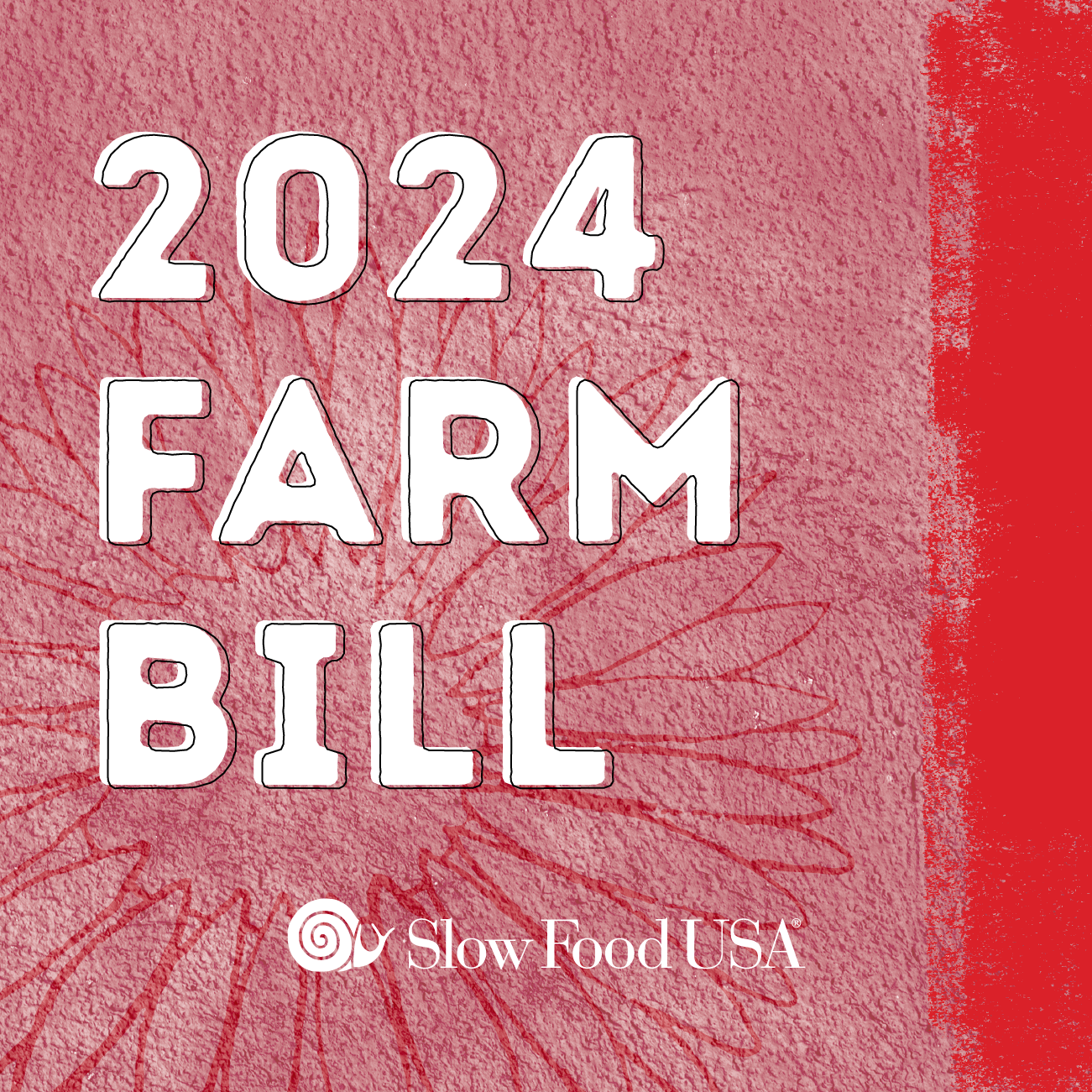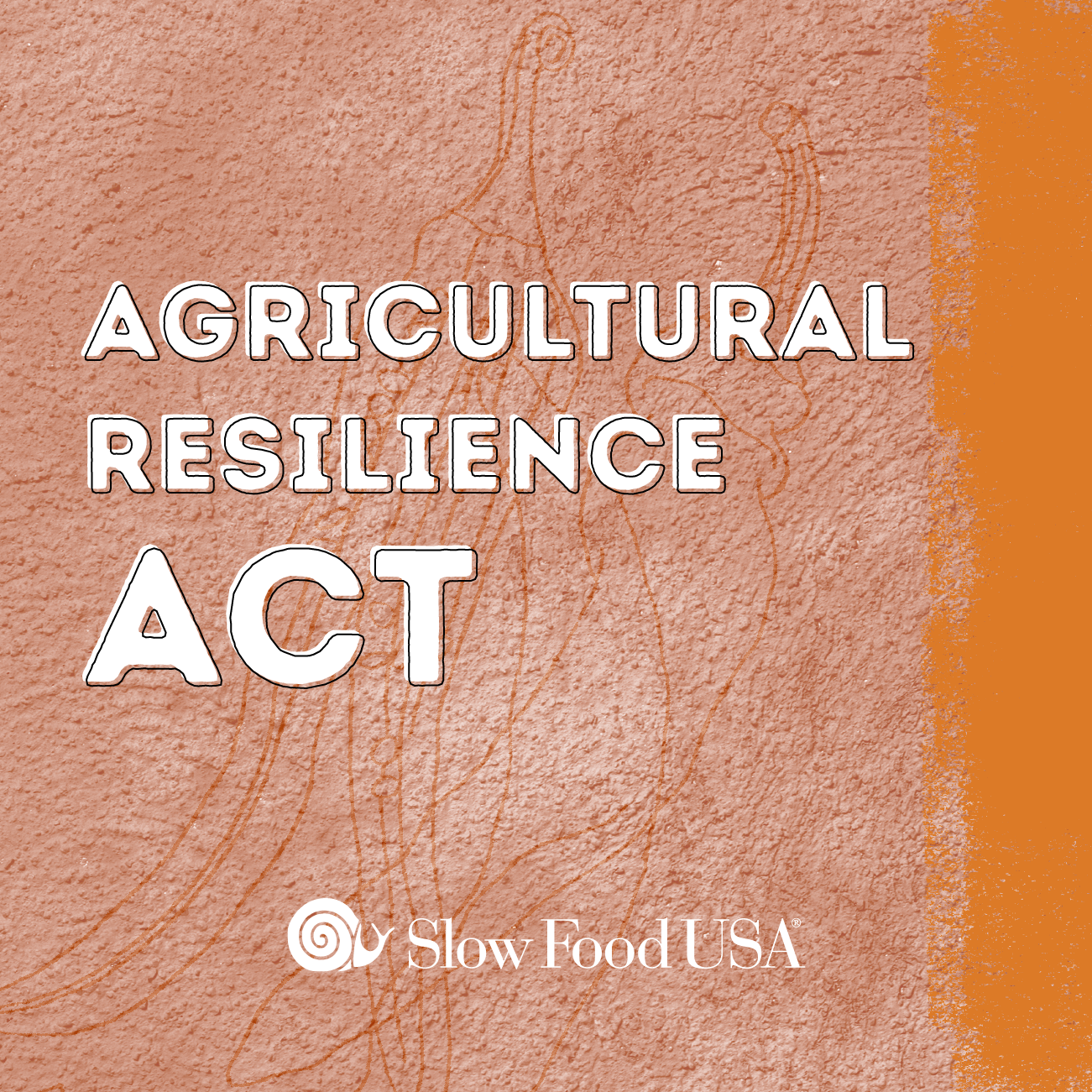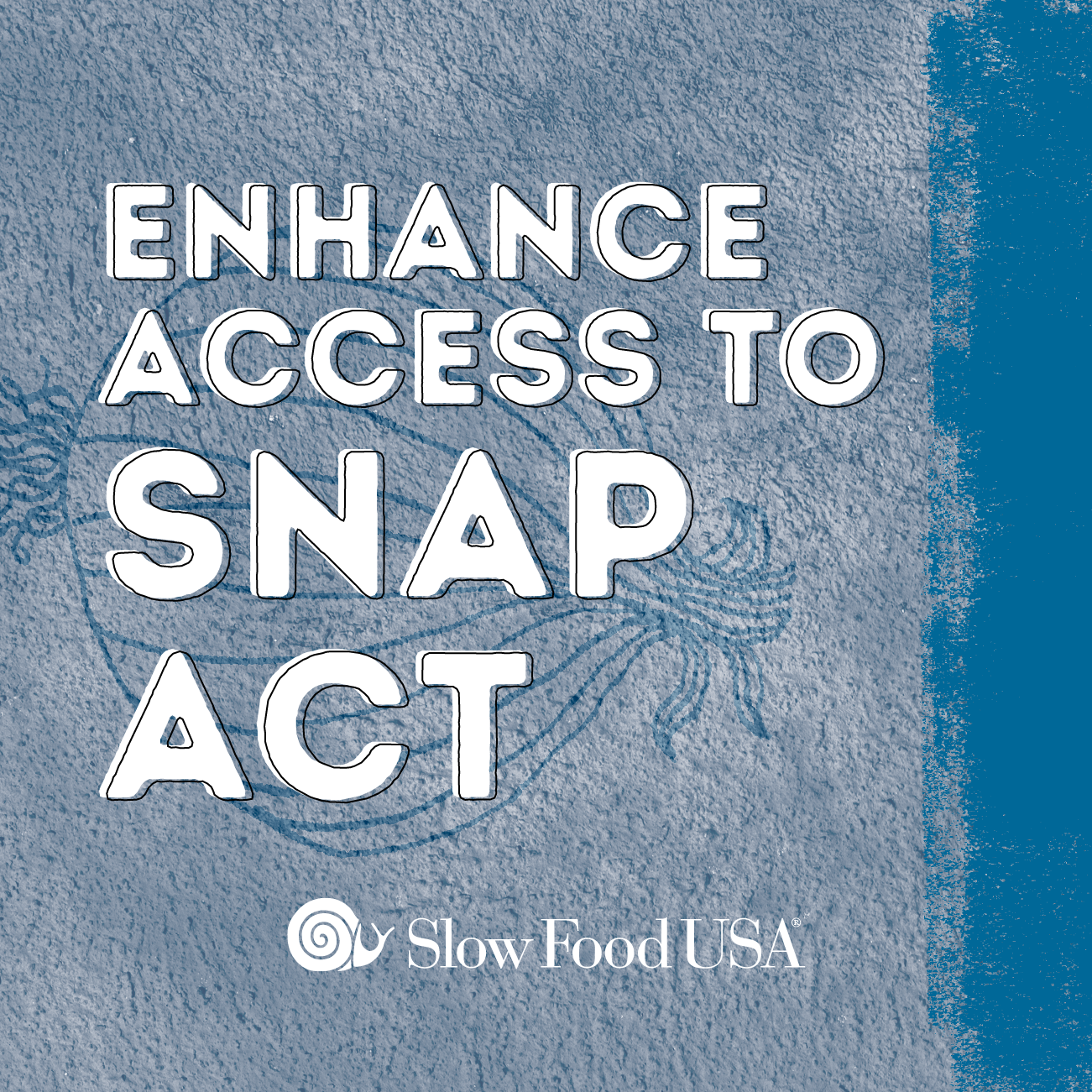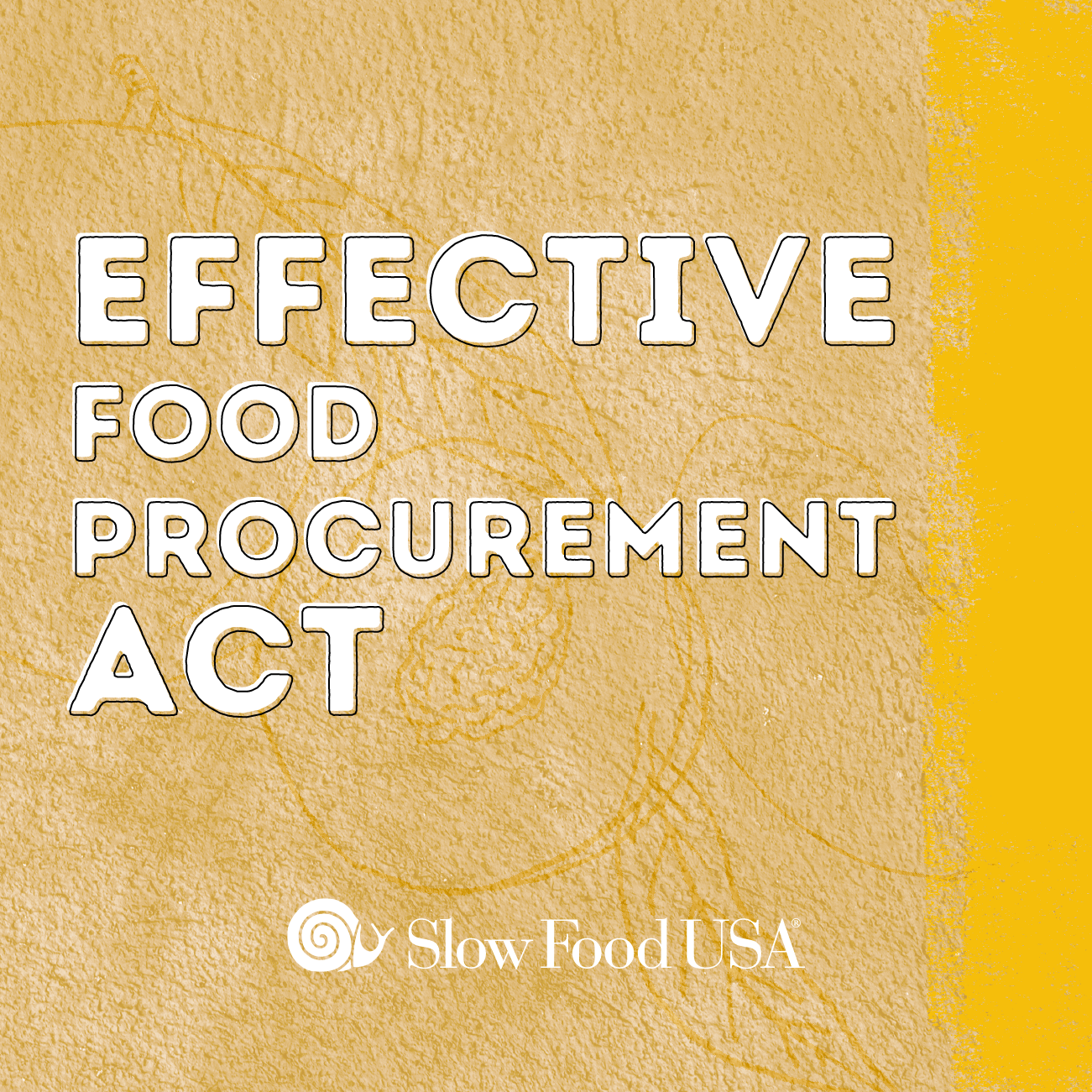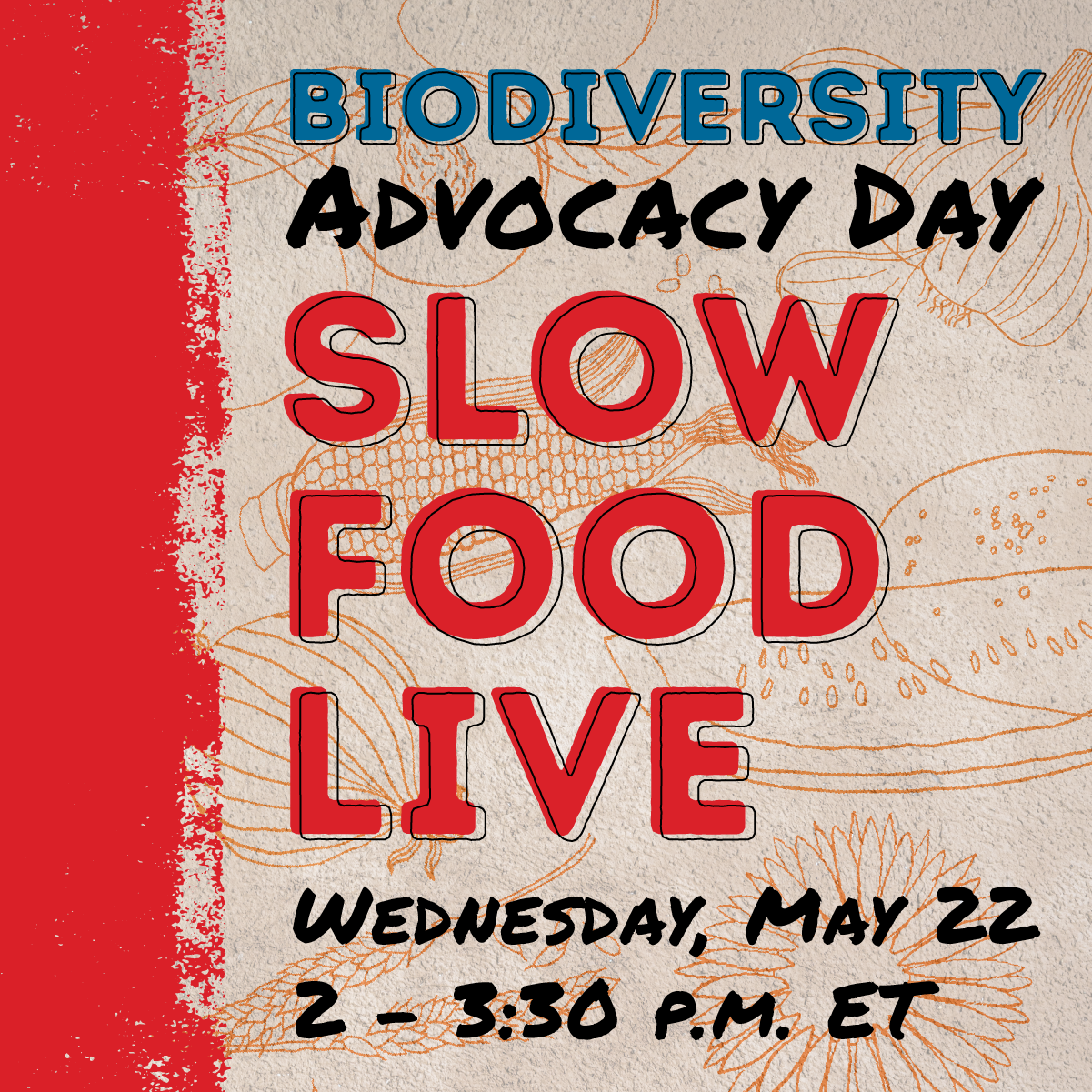
TAKE ACTION TO CELEBRATE AND DEFEND BIOLOGICAL DIVERSITY
ON MAY 22!
Each May 22, The International Day for Biological Diversity reminds us of the importance of growing the magical presence of biodiversity in our backyards, local farms and communities. Slow Food passionately advocates for biodiversity around the world; it’s one of the only paths forward to curb the climate crisis, revive our ailing global foodways, and maintain nutrition and taste in the food we eat every day.
Now it’s your turn to advocate for biodiversity!
Today marks Slow Food USA’s inaugural Biodiversity Advocacy Day. We cannot simply admire biodiversity and bask in its glory. We must demand systemic change that can stimulate and nourish biodiversity from coast to coast (and in our oceans and waterways, too!). Today, join Slow Food USA activists in calling or emailing your elected officials to defend biodiversity.
— Dalì Nolasco Cruz, Slow Food International Board member
WHAT IS BIODIVERSITY AND WHY IS IT SO IMPORTANT?
Biodiversity, short for biological diversity, encompasses the variety of life forms existing in a particular habitat or on Earth as a whole. This diversity can be observed at various levels, including genetic diversity, species diversity and ecosystem diversity.
Life cannot exist without biodiversity, but the dominating industrial food system threatens the careful relationships among plants, animals, soil, water and air. Around the world, 75% of edible plant species have now become extinct while three commodity crops — wheat, rice and corn —make up 60% of our food production. Our future depends on defending the diversity of plants and animals!
Slow Food was the first to consider food products and production techniques as integral aspects of biodiversity in need of protection. Our conservation of food biodiversity by promoting agroecological practices and sustainable consumption choices is our path toward good, clean and fair food for all.
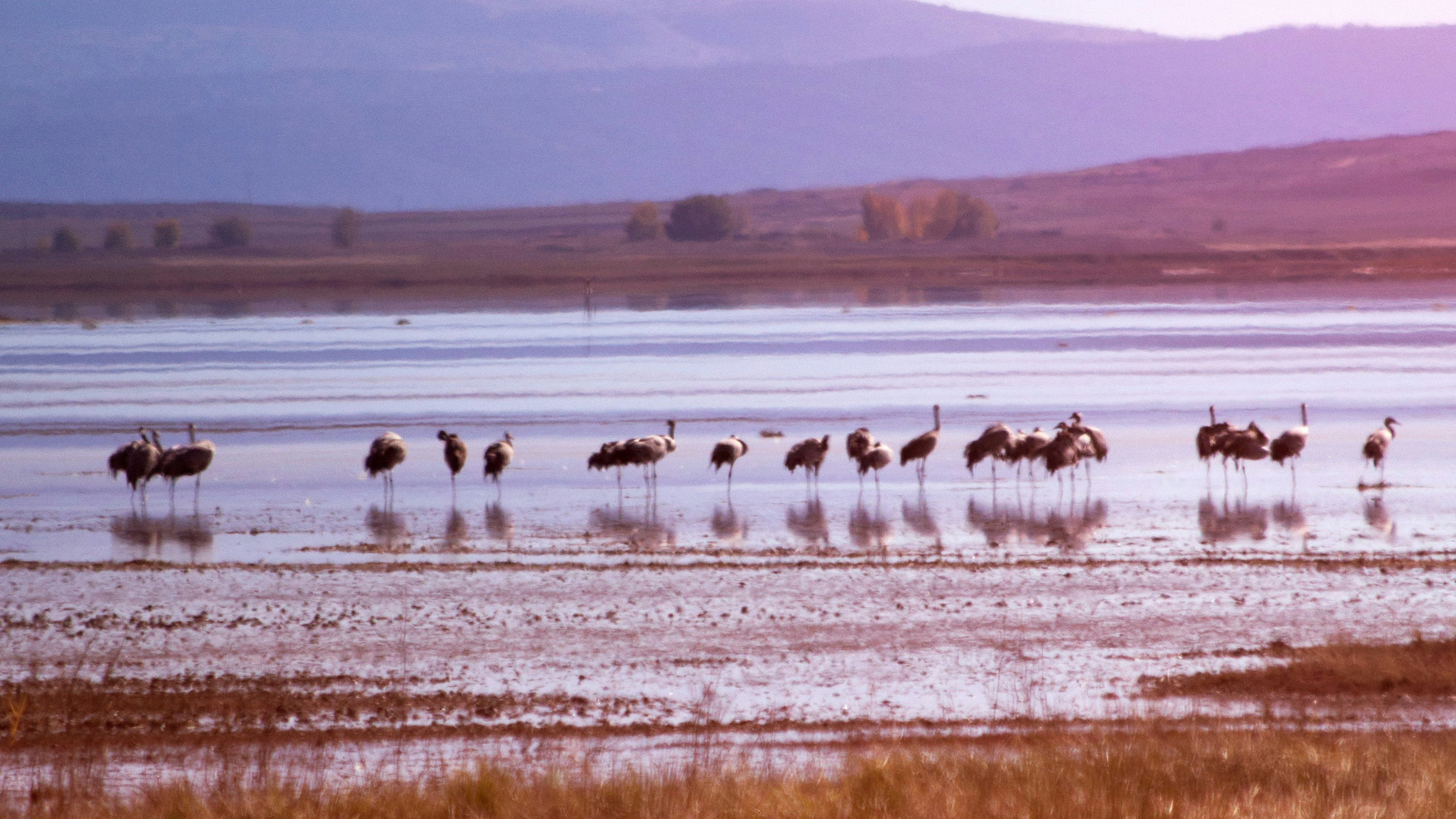
international day for biological diversity
We timed our Biodiversity Advocacy Day to coincide with the United Nations’ annual awareness day, the International Day for Biological Diversity. Learn more about this global event.
take action on the 2024 farm bill
Learn more about this important legislation and easily contact your Congressperson and Senators!
Slow Food USA is dedicated to working toward a world where our food can be good, clean and fair for everyone. A large piece of that puzzle is policy, so today, we’re engaging with our elected officials to ensure our food policy priorities are honored at the federal level.
Currently, Congress is hard at work on a Farm Bill, which is a huge piece of legislation that creates the “rules for the road” of our food system in the US. This bill is passed every 5 years and is a chance to advance justice and equity from farm to table.
Follow along below to learn, look up your legislators, and take action to advance Slow Food values in the next Farm Bill! Then, please let us know you took action.
1. Learn about the Farm Bill and Slow Food values
On May 1, the U.S. Senate Agriculture, Nutrition, and Forestry Committee released a framework that lays the foundation for a great Farm Bill called the Rural Prosperity and Food Security Act of 2024 (RPFSA). Slow Food USA was excited to see RPFSA aligned with many of our priorities! Our 4 policy pillars were all represented in the framework, giving us hope for a bipartisan, just Farm Bill. Below is more information about how RPFSA represented the Slow Food USA policy pillars.
(1) Advocating for Sustainable Practices to promote a Healthier Planet
RPFSA takes the historic investment in climate-smart agriculture from the Inflation Reduction Act (IRA) and commits to reinvesting it to continue supporting farmers in addressing the climate crisis. Some of the programs RPFSA is uplifting include Conservation Stewardship Program (CSP), Environmental Quality Incentives Program (EQIP), Conservation Reserve Program (CRP), Regional Conservation Partnership Program (RCPP), State and Tribal Assistance for Soil Health Program, and more!
(2) Securing Nutrition and Wellness for Children
The Nutrition Title is the largest financial piece of the Farm Bill, and for good reason! Not only does this fund SNAP (formerly known as food stamps) which helps millions of low-income Americans put food on the table, but it also authorizes other programs like The Emergency Food Assistance Program and Commodity Supplemental Food Program (CSFP).
RPFSA helps feed kids by building on investments from the American Rescue Plan, Access to Baby Formula Act, Families First Coronavirus Response Act, and Keep Kids Fed Act. In short, this framework protects and strengthens SNAP. It does this by continuing future adjustments to the Thrifty Food Plan which ensures SNAP will continue to be fully funded, establishing a path for residents of Puerto Rico to participate in SNAP, and permanently allowing tribes to procure their own food to distribute on Indian Reservations.
(3) Supporting local, family-scale producers, fishers and workers
Slow Food USA knows how crucial supporting small-scale farmers is to a good, clean, and fair food system. RPFSA permanently authorizes the Local Food Purchase Assistance program (LAMP) to purchase produce, dairy, and meat from underserved producers, specifically setting aside funding for Tribal communities, as well as sustaining investments in local meat processing, providing food safety resources and workforce development funding. Furthermore, RPFSA sustains microgrants, loans, and technical assistance that supports new and beginning farmers.
(4) Fighting for Equity, Inclusion and Justice within our Food System
We know that Slow Food’s goals of a good, clean, and fair food system cannot happen without centering equity, inclusion, and justice. RPFSA includes a number of programs that would support marginalized farmers and producers, including expanding language translation services within the USDA, creating civil rights accountability for USDA employees, and broadening the inclusion of Tribal-specific provisions that would eliminate unnecessary barriers to USDA programs. RPFSA also includes Heirs Property and Fractionated Land Legal Clinics which would help ensure farms stay within a family from generation to generation.
What’s going on in the House?
On May 17, the House Agriculture Committee Chairman Glenn “G.T.” Thompson released their version of the 2024 Farm Bill. It missed the mark almost entirely and reverses progress made to broaden access to SNAP and advance climate crisis-fighting approaches that farmers want and need. We oppose this bill and must ask our U.S. Representatives to oppose it, too.
2. Look up your legislators
Click here to find the phone number of the offices for:
- Your U.S. Representative
- Your two U.S. Senators
3. Call them using this script
Call or email your legislator (found here) to ask for their support for a Good, Clean and Fair Farm Bill that echoes the U.S. Senate’s summary of the 2024 Farm Bill.
Please share any personal ways the next Farm Bill impacts you as a farmer, food lover, food worker, fisher, program beneficiary, or any other way you are connected to food.
Script: “Hi, my name is ____ and I’m a constituent and a ____ [farmer, parent, concerned citizen, etc.]. As an activist who’s part of the Slow Food USA network, I dream of a world in which there is good, clean and fair food for all. I want to ensure that we have a Farm Bill that supports a sustainable and just food system. I support the recently released Senate version of the Farm Bill called the Rural Prosperity and Food Security Act. However, the House version of the 2024 Farm Bill harms communities and farmers and works against our progress for a better food future. We cannot allow the the Farm, Food, and National Security Act to become the blueprint for this important legislation. Ultimately, I want _________ [elected official] to vote for a Farm Bill that protects and strengthens SNAP, supports small-scale and BIPOC farmers, and prioritizes climate-smart agriculture. Thank you!”
4. Let us know you took action
Thank you for contacting your U.S. Senators and U.S. Representative!
Now, click here to let us know you reached out to them about the Farm Bill.
WANT TO DO MORE? CHECK OUT THESE ACTIONS BELOW!
Thanks for taking action on the Farm Bill to ensure it advances good, clean and fair food for all! Want to do more? Check out these important marker bills, or legislation that is designed to be included in omnibus bills like the Farm Bill. Read a bit about them and then take action by contacting your elected officials!
You’re still here! Want to take your advocacy to the next level? Learn more about your U.S. Representative and U.S. Senators to see if they have sponsored any of these four bills. Thanks!
GET EQUIPPED TO TAKE ACTION
Hear from policy experts, farmers and activists about what matters to them, what the goals of our target bills are, and why we need to slow down and nurture lasting and powerful biodiversity.
Honored guests:
🌱 Bilal Sarwari, Slow Food USA
🌱 U.S. Congresswoman Chellie Pingree (D-ME)
🌱 Cristina Cabrera, Northeast Sustainable Agriculture Working Group (NESAWG)
🌱 Denisa Livingston, Diné Community Advocacy Alliance
🌱 Marta Messa, Slow Food International
🌱 Marven Cantave, farmer and activist
🌱 Vanessa García Polanco, Young Farmers
About the 2024 Farm Bill
The Farm Bill is not only the largest piece of legislation to dictate our food systems in the US, but it’s one of the most epic bills to pass through Congress. Every five years, our elected members of congress draft, review and negotiate hundreds of pages of legislation to determine who grows our food, what is grown, how it’s grown, and who has access to it.
On May 1, 2024, The U.S. Senate Agriculture, Nutrition and Forestry Committee released its draft version of the Farm Bill. Called the Rural Prosperity and Food Security Act, this legislation “addresses the issue of foreign ownership of farmland, builds on our commitment to rural communities, makes meaningful investments into the farm safety net to provide certainty to all farmers, ensures that the Supplemental Nutrition Assistance Program (SNAP) keeps up with the realities of American life, and brings the historic investment in climate-smart conservation practices into the Farm Bill.” The House Agriculture Committee has not yet released its version of the Farm Bill. Ultimately, Congress will need to negotiate for a single Farm Bill that it will then vote into law.
SAMPLE PHONE SCRIPT
“Hi, my name is ____ and I’m a constituent and a ____ [farmer, parent, concerned citizen, etc.]. As an activist who’s part of the Slow Food USA network, I dream of a world in which there is good, clean and fair food for all. I want to ensure that we have a Farm Bill that supports a sustainable and just food system. I support the recently released Senate version of the Farm Bill. Ultimately, I want _________ [elected official] to vote for a Farm Bill that protects and strengthens SNAP, supports small-scale and BIPOC farmers, and prioritizes climate-smart agriculture. Thank you!”
Let us know you took action on this bill!
About the agricultural resilience act
The Agriculture Resilience Act (ARA) supports the expansion of USDA research, extension programs, education programs, conservation programs and livestock programs ‘to incorporate climate change adaptation and mitigation’. It also works to reduce carbon emissions from the agriculture sector, improve soil health, reduce food waste and preserve farmland and grassland.
SAMPLE PHONE SCRIPT
“Hi, my name is ____ and I’m a constituent and a ____ [farmer, parent, concerned citizen, etc.]. As an activist who’s part of the Slow Food USA network, I dream of a world in which there is good, clean and fair food for all. I care deeply about climate change! The Agriculture Resilience Act (ARA) will support the transition to sustainable and climate-friendly food and agriculture systems, while setting ambitious yet realistic goals for agriculture to be part of the solution to the climate crisis. Will you consider cosponsoring or supporting the ARA? Thank you!”
Let us know you took action on this bill!
About the effective food procurement act
The Enabling Farmer, Food Worker, Environmental, and Climate Targets through Innovative, Values-aligned, and Equitable Food Procurement Act (EFFECTIVE Food Procurement Act) outlines priorities for commodity food purchases that would increase purchases from small or mid-sized operations, agricultural cooperatives, organic producers, and producers that increase climate resilience. Additionally, this bill provides grants and technical assistance for trainings, upgrades or certificates for small or midsize, beginning, veteran and socially disadvantaged farmers. This bill lifts up foods that nourish the people who eat them, foods that benefit the people involved in growing and preparing them, and foods that regenerate the land where they’re grown, mitigating climate change instead of contributing to it.
SAMPLE PHONE SCRIPT
“Hi, my name is ____ and I’m a constituent and a ____ [farmer, parent, concerned citizen, etc.]. I am an activist who’s part of the Slow Food USA network. I dream of a world in which there is good, clean and fair food for all. As your constituent, I care about where my food comes from. When the USDA purchases food, I want them to prioritize things other than cost, like how the food was grown, who is growing it, and the quality of the food. The EFFECTIVE Food Procurement Act will help the USDA’s procurement practices reflect these values. Will you consider co-sponsoring or supporting this bill? Thank you!”
Let us know you took action on this bill!
About the enhance access to snap act
The Enhance Access to SNAP Act of 2023, or EATS Act of 2023, would permanently remove barriers and expand access to the Supplemental Nutrition Assistance Program (SNAP) eligibility for students enrolled in college half-time or more.
Learn more from Food Research & Action Center
SAMPLE PHONE SCRIPT
“Hi, my name is ____ and I’m a constituent and a ____ [farmer, parent, concerned citizen, etc.]. I am an activist who’s part of the Slow Food USA network. I dream of a world in which there is good, clean and fair food for all. As your constituent, I care about equitable access to food. Currently, it is extremely difficult for college students to go to class and work enough hours to be eligible for SNAP. The Enhance Access to SNAP bill would help make SNAP more accessible to college students. Will you consider cosponsoring or otherwise supporting this bill? Thank you!”
Let us know you took action on this bill!
The Justice for Black Farmers Act aims to provide a variety of assistance to address historical discrimination and disparities in agriculture. This bill establishes an equity commission, a Farm Conservation Corps for young, socially disadvantaged groups training in farming, funding to support education in careers in agriculture, addresses issues related to ownership and succession of farmland and credit assistance.
SAMPLE PHONE SCRIPT
“Hi, my name is ____ and I’m a constituent and a ____ [farmer, parent, concerned citizen, etc.]. As your constituent, I am anxious for Representative/ Senator ____ to support the Justice for Black Farmers Act. This bill addresses and corrects historic discrimination within the U.S. Department of Agriculture in federal farm assistance and lending that has caused Black farmers to lose millions of acres of farmland and robbed Black farmers and their families of hundreds of billions of dollars of inter-generational wealth. The Justice for Black Farmers Act will enact policies to end discrimination within the USDA, protect remaining Black farmers from losing their land, provide land grants to create a new generation of Black farmers and restore the land base that has been lost, and implement systemic reforms to help family farmers across the United States. Will you consider cosponsoring or supporting this bill? Thank you!”

